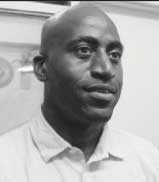
THE theme of this year’s Nobel Laureate Festival, “Celebrating Excellence: Consolidating our Legacy”, seems especially appropriate after the passing of Sir Derek Walcott on March 17 last year. The festival ends on February 16, which allows some time to inject excellence into our respective areas of work and pay tribute to the extraordinary examples of excellence demonstrated by our Nobel Laureates.
First, we need to actually recognise excellence beyond good work or good service. At the annual Business Awards held last Saturday, the judges awarded those deemed worthy of excellence. Congratulations to the winners! Most likely, the judges had help in the form of a dossier describing the hard work and excellent efforts of the awardees. What if there was no extra information to help make a decision? Could you assess the excellence of a business or process without having inside information describing its operations?
Sometimes a casual glance is all you need to glean plenty information about the internal state or operations of a system. For example, the single light coming from an otherwise darkened house suggests the location of its occupant. When filling out forms, if you are asked for repeated information or facts already known about you, then you can infer weaknesses in the process. Admittedly, some redundancy might be useful to detect mistakes, changes, or attempts at fraud.
Here are some other examples:
1) Loose gravel on the road surface, especially near corners and recent patches. The safety needs of road users, especially bikers, are overlooked;
2) Tall vehicles parked near pedestrian crossings. A dangerous risk to pedestrian safety;
3) Public Christmas decorations on display for several weeks into the New Year. A festive project not yet closed.
When you think about the role of a computer in an organisation, it is not a magical silver bullet to rid you of all your problems. An inefficient process, aided by a computer, is still inefficient, just less so. Consider how you may get your work done while reducing most of the paper or information supplied by the customer. Your customers will thank you and the environment will thank you also. You may be supplying an excellent service.
To share your views, contact the author at: www.datashore.net or via The VOICE.
(About the Author: Dr. Lyndell St. Ville is an ICT Consultant offering expertise in data management, systems design and analysis.)














